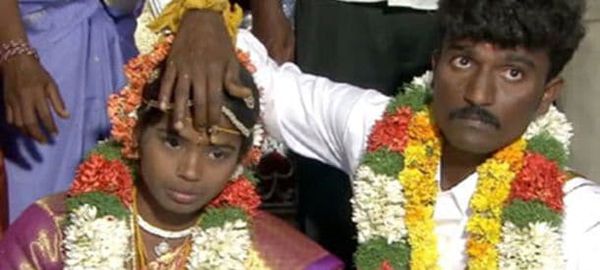Eye For Film >> Movies >> Salma (2013) Film Review
Salma
Reviewed by: Rebecca Naughten

The story of an indomitable spirit, of a woman who refused - and refuses - to be cowed by the strictures of her society, Kim Longinotto's documentary about the Tamil poet Salma burns with both indignation and a profound melancholy.
As is the custom in the Muslim community in southern India, Salma was removed from the education system at the onset of menstruation at age 11 and kept confined to her family home - and a room without a view - for the nine years in which she refused to consent to marriage. When she married (brought about via an act of subterfuge and betrayal on the part of her mother) all that changed was the location of her imprisonment - between her family and her in-laws, she was locked up for more than two decades.
Photographs of Salma in adolescence and her early twenties show a young woman with sad eyes but a determined stance. Despite a truncated education, words were Salma's salvation, an outlet for the fury and emotional turmoil that her imprisonment engendered in her. Once married - and against the wishes of her husband - Salma surreptitiously wrote poems on gleaned scraps of paper (her notebook was confiscated), her pen hidden in a box of sanitary towels. Through convoluted means, these poems were smuggled out of the house and sent to a publisher - her first book was published without the knowledge of her husband or in-laws.
Longinotto gives us Salma's story piecemeal. The director utilises the occasion of Salma returning to the village to visit her family as a route into the past, asking family members about Salma's earlier life - we are frequently shown Salma silently listening to another person's account of events. These family members often talk to the camera rather than to Salma and so the camera becomes a conduit for both truths and self-justifications, but also reveals the strength of character she possessed while her family tried to silence her - Salma's aunt glows with pride when she talks of all the battles her niece fought ("and she won all of them"). The director respectfully doesn't probe Salma's own perspective of her familial bonds, but the onscreen assertions of her mother and husband in particular suggest complicated relationships - the balance of forgiving and forgetting required by Salma seems precarious, although this is not explored.
The repeated justification for the family's behaviour was their not wanting to go against 'the village'. As the film progresses it becomes apparent that this is not so much a group of people as a mindset that positions women as second-class citizens, denying them autonomy. The shocking thing is that what happened to Salma is still going on, the attitudes perpetuated in the behaviour of her brother (who wants his adolescent daughter to leave school and get married), nephew (who rails against his aunt refusing to wear a burqa), and even her own sons - she worries that "there is something backward in their thinking". We see two young girls getting married - one of whom struggles to maintain her composure, taking deep breaths as her mouth trembles and her eyes well up - and hear of another who died after setting herself on fire, so desperate was she to escape her situation.
After Salma's identity was revealed post-publication - which was a scandal due to the honesty of her writings - her husband pushed her to stand as leader of the local council (one of many contradictions in their relationship), and she won. Four years later she became welfare minister in the national party and her world opened up as she was finally able to leave the village. Despite that, the film leaves the impression that she is still confined - by familial ties most of all. But Longinotto opens and closes her film with the same lines of Salma's poetry - "If not today, then tomorrow / If not tomorrow, then another day / That's how life has always seemed / Since the dawning of memory" - which if they melancholically suggest that surviving isn't the same thing as living, also provide a spark of hope that Salma's story isn't over yet.
Reviewed on: 31 Oct 2014















